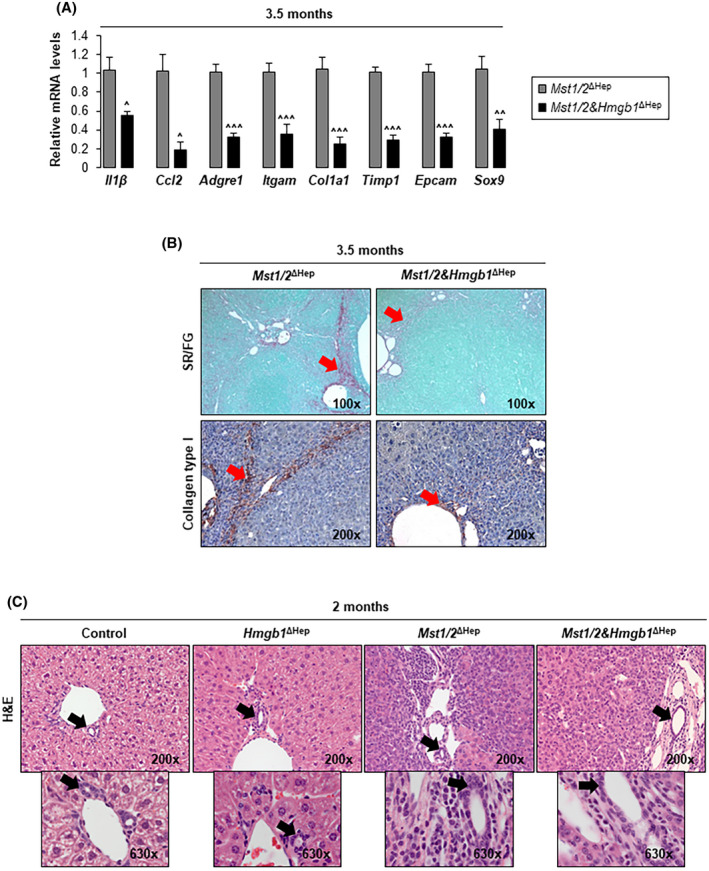FIGURE 5.

Ablation of Hmgb1 in Mst1/2 ∆Hep mice reduces inflammation, fibrosis, and ADCs. Control, Hmgb1 ∆Hep, Mst1/2 ∆Hep, and Mst1/2&Hmgb1 ∆Hep mice were generated and followed for the development of tumors for 2 or 3.5 months. (A) Relative liver mRNA levels of Il1β, Ccl2, Adgre1, Itgam, Col1a1, Timp1, Epcam, and Sox9 at 3.5 months (n = 3–6/group). (B) Sirius red/fast green staining (top) and collagen type I IHC (bottom) (red arrows show collagen deposits) at 3.5 months. (C) H&E staining at 2 months. Images show zone 1 (black arrows show anatomical BDs) with expansion of ADCs (small round cells with scant cytoplasm) in Mst1/2 ∆Hep and Mst1/2&Hmgb1 ∆Hep mice. Values are given as mean ± SEM. ^p < 0.05, ^^p < 0.01, ^^^p < 0.001 for Mst1/2&Hmgb1 ∆Hep versus Mst1/2 ∆Hep. Abbreviations: ADC, atypical ductal cell; Adgre1, adhesion G protein‐coupled receptor E1; BD, bile duct; Ccl2, C‐C motif chemokine ligand 2; Col1a1, collagen type I alpha 1 chain; Epcam, epithelial cell adhesion molecule; H&E, hematoxylin and eosin; HMGB1, high‐mobility group box‐1; IHC, immunohistochemistry; Il1β, interleukin‐1β; Itgam, integrin subunit alpha M; mRNA, messenger RNA; MST1/2, mammalian sterile 20‐like 1 and 2; Sox9, sex‐determining region Y‐box 9; SR/FG, sirius red/fast green; Timp1, tissue inhibitor of metalloproteinase 1
